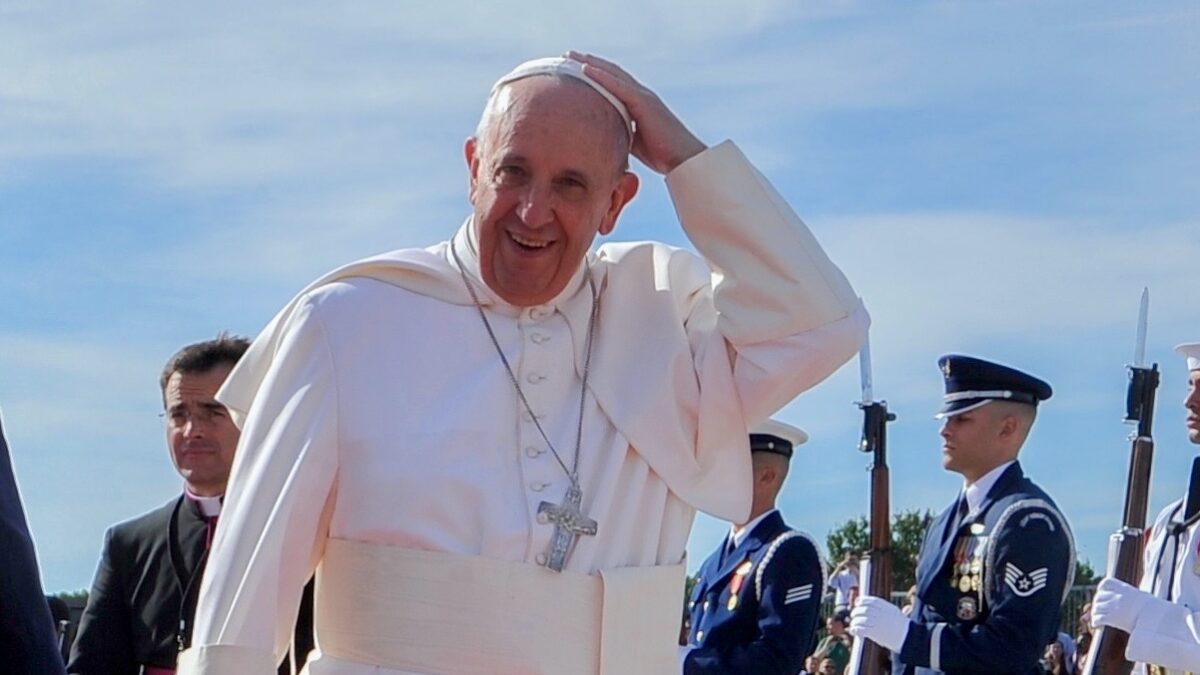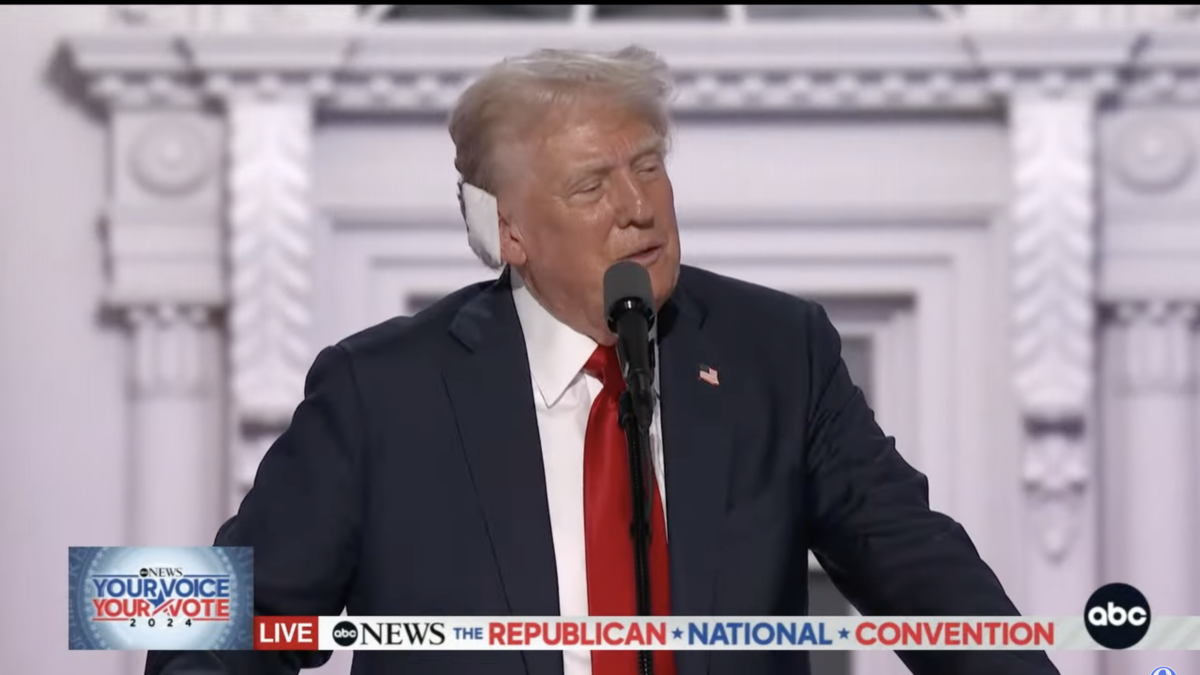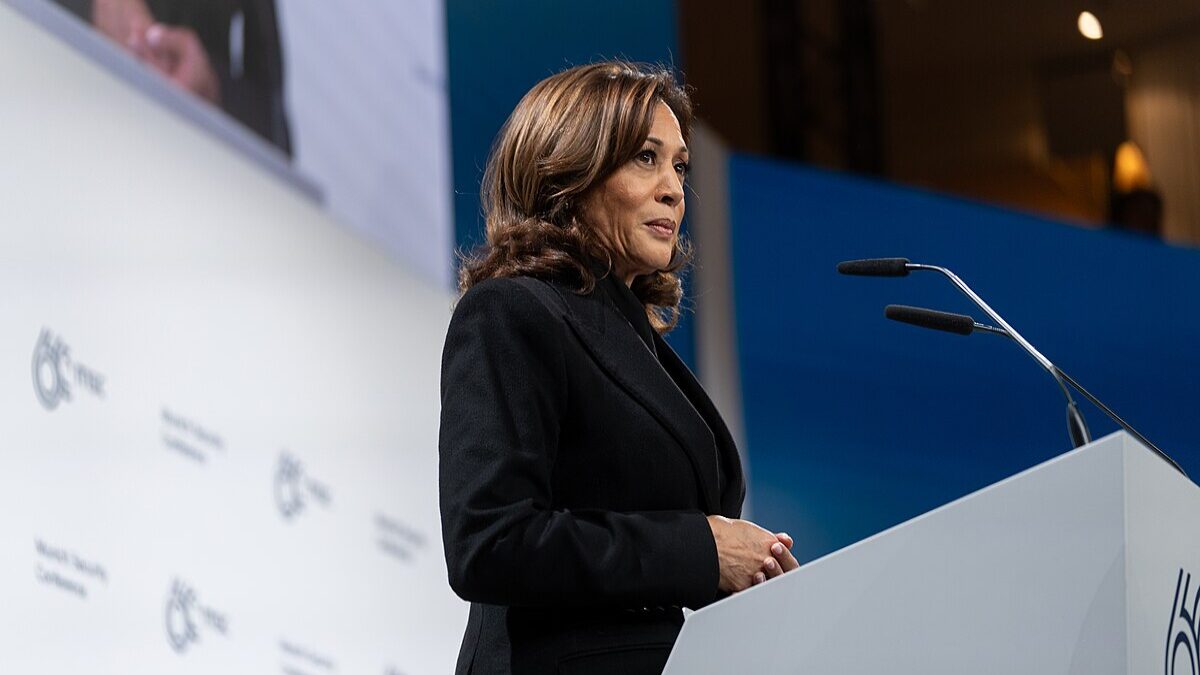Pope Francis’ coy two-step on sexual mores hangs over Catholic culture like the sword of Damocles. Papal ambiguity weakens the Catholic Radio Association’s current effort to resist newly mandated reporting rules about workforce diversity. Driving the rules is an ideological ambition to demolish the scaffolding of traditional behavioral norms regarding sex.
Specifically at issue is the “nonbinary” classification.
In February, the Federal Communications Commission (FCC) reinstated a dormant requirement that radio stations must file Form 395-B. The document requires radio stations and their affiliates to list the race and “gender” of their employees. It has gone unused since 2004, following a 2001 ruling by the U.S. Court of Appeals for the District of Columbia Circuit.
But 20 years later, the word “gender” is no longer a surrogate for sex, meaning the biological distinction between male and female. Today “gender” signifies a range of chosen behaviors that are treated as if they were ethnic or racial realities. Consequently, the FCC’s renewed mandate requires a head count of so-called “nonbinary” personnel from radio stations transmitting on AM or FM frequencies, satellite radio, cable networks, and broadcast TV stations.
The Catholic Radio Association, joined by other broadcasters, has filed a petition against the FCC, arguing that the mandate is a form of compelled speech. It coerces broadcasters to accept the validity of categories — e.g., the inventory of so-called “genders” — that do not comport with bodily reality. Consequently, the FCC’s order to affirm “nonbinary” status violates their Catholic faith.
But does it?
A clear answer in the affirmative would have come easily to every bishop of Rome since Simon Peter until now. But unequivocal clarity offends against the reigning secular dogma of diversity, inclusion, and bureaucratic aggression against biological facts. Concerned with his street cred, image-conscious Francis prefers the zeitgeist-friendly approach to sexual codes and practices. Lurking behind his reveries about love and sexuality is careful avoidance of the word sin.
We do not hear much about sin anymore in relation to sexual behaviors. Thomas Mann’s quip that sin is “a half-jovial, familiar, and mildly facetious word” suits the Bergoglian pontificate.
He released that snake onto the field in “The Pope Answers,” a Disney documentary released in April 2023. In what America Magazine called “a lived example of the culture of encounter,” Francis confided to a small group of twenty-somethings that, yes, he knew what the term “nonbinary” meant.
But he declined to state what the term signified or to allocate gravity to it. Instead, he leap-frogged over any issues attached to the descriptor and landed full-square on a plush welcome mat to all passport holders in the LGBT nation:
Sex is one of the beautiful things that God has given to the human person. To express yourself sexually is a richness. So anything that detracts from real sexual expression lessens you and depletes this richness.
It is pied beauty all around:
All persons are the children of God. All persons. God does not reject anybody. God is a father. And I have no right to expel anyone from the Church.
Reference to expulsion was a red herring. It shifted attention away from the issue at hand: Is “nonbinarism” just one of those lovely gifts from God? Or is it a nihilistic chimera that undermines the social order by simultaneously denying the polarity of the sexes and, consequently, the ultimate ends of sex?
Those tablets carried down from Sinai heralded a God who rejects certain behaviors. Accordingly, Jesus’ injunction, “Go and sin no more,” was a command to relinquish forbidden habits. As pope, Francis has not only a right but an obligation to name those behaviors that contradict the Catholic Church’s traditional moral compass.
Language is a critical load-bearing structure of culture. For that reason, we take seriously George Orwell’s warning that “the worst thing you can do with words is to surrender to them.” Being “nonbinary” is largely a shiny new term for bisexual — the B in LGBT. Not so long ago, a bisexual was just one of those AC-DC types whose electrons switched directions depending on who was available and willing. In short, the word described a sexual opportunist.
By now, in the linguistic version of a corporate takeover, the term “nonbinary” has been annexed by a movement. It has become an -ism — “nonbinarism” — boosted by force of will into an identity. Promoted as if it were a core component of one’s being, like race or ethnicity, it escapes the boundaries of an articulated moral system. The moral crudity of a dissipating culture elevates it to a civil rights issue.
Francis’ on-camera heart-to-heart with Gen Zers cocooned a subjective, nonbiological identity in the gossamer skein of unspecified sexual expressions. “The Pope Answers” strengthened the very radical gender ideology Francis officially rejects.
The FCC reports that the first 395-B filings will be due Sept. 30. It would help if, by then, Francis found an opportunity to disavow the word “gender” and its glossary of spawned coinages.









